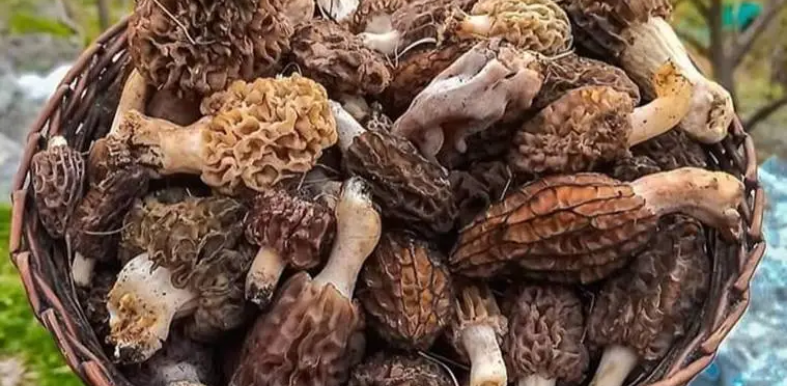How a Chinese trick led to sharp decline in Himachal Gucchi mushroom prices

- Pre Paragliding World Cup Kicks Off in Bir Billing Valley, 105 Pilots from 32 Countries Competing - November 2, 2024
- Diwali business: HRTC earns record revenue - November 2, 2024
- Interest-Free Aid from Center Boosts Chandigarh-Baddi Rail Line Project - November 2, 2024
Fetching up to Rs 13,000 per kg before 2020, it’s now selling only for Rs 4,500
The cultivation of Gucchi mushrooms in China has caused a significant decline in the prices in Himachal Pradesh, affecting the local economy that was dependent on this prised fungus. Over the past four to five years, China’s controlled cultivation of Gucchi has flooded the market, leading to a drastic reduction in prices. In Himachal, Gucchi is collected from jungles after a thunderstorm, its finding linked to lightening.
Fetching between Rs 10,000 and Rs 13,000 per kg before 2020, Gucchi now sells for only Rs 4,500 to Rs 5,000 per kg in Kullu district. This year, Kullu has experienced a bumper crop of Gucchi, with forest gatherers like Shambhu, Lok Singh, Nigam Singh, Bankey Lal and others collecting substantial amounts. However, the abundant harvest has not translated into financial gain, as the prices have plummeted.
Chaman Lal, a veteran Gucchi trader with 40 years of experience, attributes the price drop to China’s mass production in polyhouses. “The rates for Gucchi have been decreasing year after year because of the competition from Chinese Gucchi. The market is being flooded with cheaper and cultivated mushrooms, which is ruining our business,” he lamented.
Shakti Thakur, another trader from Teel in Banjar, echoed similar concerns. “The entire business is suffering. People are opting to consume their Gucchi harvest at home rather than selling it at such low prices. In the Banjar fair, only about 12 to 13 quintals of Gucchi have been traded, much less than usual,” said Thakur.
The impact of this price drop extends beyond Kullu. Districts like Mandi, Sirmaur, Chamba, Shimla and Kinnaur, where Gucchi is also found, are feeling the economic strain. In Kullu, from Nirmand to Manali, large quantities of Gucchi have been collected, but the disappointing market rates have left many disheartened.
The once lucrative trade of Gucchi, known for gracing the plates of high-profile individuals, is now facing an uncertain future. Efforts to address this economic challenge are crucial for the local communities who rely on this natural resource for their livelihood.




